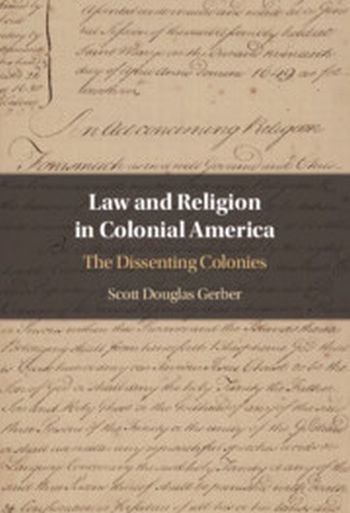
Law – charters, statutes, judicial decisions, and traditions – mattered in colonial America, and laws about religion mattered a lot. The legal history of colonial America reveals that America has been devoted to the free exercise of religion since well before the First Amendment was ratified. Indeed, the two colonies originally most opposed to religious liberty for anyone who did not share their views, Connecticut and Massachusetts, eventually became bastions of it. By focusing on law, Scott Douglas Gerber offers new insights about each of the five English American colonies founded for religious reasons – Maryland, Rhode Island, Pennsylvania, Connecticut, and Massachusetts – and challenges the conventional view that colonial America had a unified religious history.